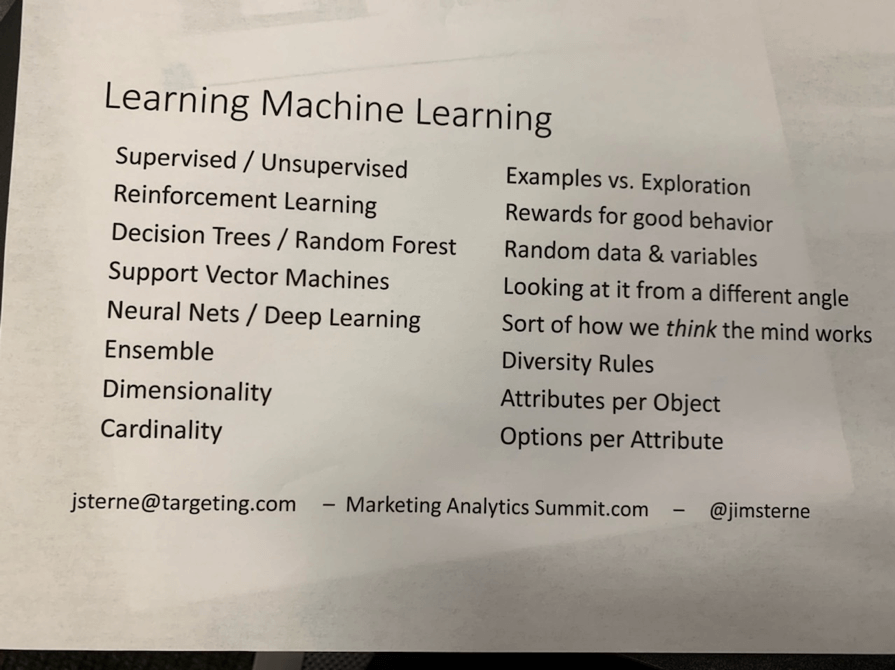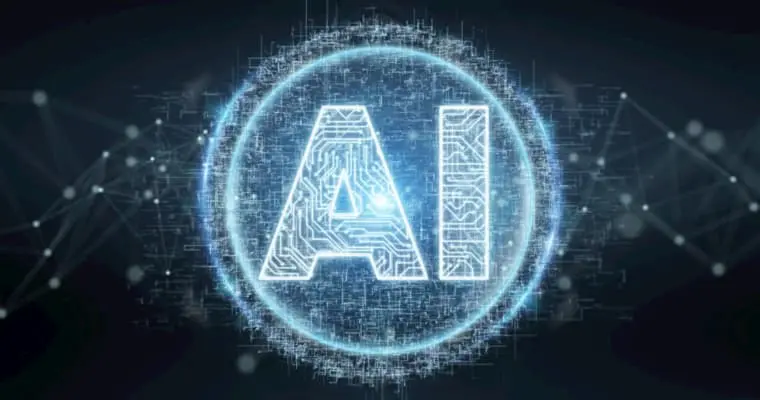Editor's Note: This post is republished with permission from an article in Search Engine Journal.
Artificial intelligence is a topic that evokes many opinions and predictions.
I have heard people express concern that AI will take jobs away from humans and an overall fear of the technology.
However, I have also heard countless others, including Paul Roetzer, explain how AI will enhance human knowledge and capabilities.
After attending Marketing Artificial Intelligence Conference (MAICON) this year, I side with the latter.
In July, hundreds of marketers gathered in Cleveland, Ohio at MAICON, to better understand AI and how it will impact them now and in the future.
The attendees consisted of marketers from various disciplines – from search marketers to advertisers to salespeople.
There were more than 50 speakers from such companies as Facebook, HubSpot, IBM, MIT Technology Review, and Yext.
Below is a recap of some of the information-packed sessions.
Learn Machine Learning
I decided to dive deep into AI by attending a pre-conference workshop that was all about machine learning taught by Jim Sterne, Director Emeritus, Digital Analytics Association.
AI is an umbrella term and is about solving specific problems. Machine learning falls under this umbrella and is where AI is today.
Machine learning is broken into three categories:
- Supervised learning.
- Unsupervised learning.
- Reinforcement learning.
Supervised learning is about statistics and not reason and is focused on helping the machine learn through labeled data.
Unsupervised learning occurs when you don’t know the answer and you want the machine to find patterns in unlabeled data.
Reinforced learning involves looking for an outcome and identifying some answers that are better than others. The following handout sums up the types of learning and other key terms:

For machine learning to work, you need to feed it a lot of data and provide a specific goal. In addition, there needs to be some control.
To put it simply, you have three responsibilities.
- Define the problem.
- Identify which data might be useful to the machine.
- Ask yourself: Does the outcome make sense?
From a practical perspective, machine learning can already help you with many repetitive tasks, including:
- Lead scoring
- Meeting scheduling
- Personalizing content
- Inbound email sorting
- Social media monitoring
- Programmatic advertising
- Creating social media messages and ad copy
- Correlations
- Segmentation
- Clustering
- Identifying anomaliesBecome a Marketing AI Pioneer
Although AI is discussed as an up-and-coming technology, our life is currently AI-assisted.
When you talk with Siri on your iPhone or speak with Alexa on your Amazon Echo device, you are activating AI and you are likely using it to make your life easier.
Marketing will be there, too.
Paul Roetzer predicts that within the next 3 to 5 years, everything we do will be intelligently-automated.
The reason?
AI enhances our knowledge and capabilities as humans and as marketers. It helps reduce costs by intelligently automating repetitive, data-driven tasks.
AI also allows marketers to make predictions and creates personalization for consumers.
Finally, AI has the ability to make brands more human. Paul made a powerful comment during his presentation, “We aren’t trying to replace humans. We’re trying to unlock their full potential.”
You can learn more in this guide from the Marketing Artificial Intelligence Institute.
Think of Voice as the New Mobile
If you want to see AI in action today, simply consider voice search.
Mitch Joel, Founder of Six Pixels Group, explained that there is already a significant user base with voice search and it is a great way to get on board with AI.
Voice search is becoming the new smartphone and it is predicted that 30% of searchers will be without a screen by 2020. This growth can be seen with the widespread adoption of smart speakers.
Today, about 1 in 4 Americans over the age of 12 own a smart speaker. These devices are intuitive and easy to use, which is evident in the growing number of people using smart speakers to shop.
Voice technology is going to change accessibility like no other technology before. It will surround you.
Just take Google as an example. Google didn’t just figure out the right answer, it learned you have to be right, fast, and human.
What about content we’re getting on voice assistants?
Right now, we are just barking orders to the assistant. However, as a marketer, there is the potential to create that “killer” app or skill for smart speakers.
Think of voice as the new mobile. It will be the gateway for all technology and in essence, the remote control for life.
Recognize That Machine Learning Is Changing Search Landscape
We have moved well beyond search and are now in the midst of discovery.
According to Duane Forrester, search is what we had over the last 20 years. It occurred when you had an idea and entered something into the search engine.
Now, we are more evolved and use discovery to find our answers.
“Find restaurants near me” is a prime example. Google is starting to use AI in Google Maps, which you can see in the following image from Forrester’s presentation.
You can hold up your smartphone in an area and it will tell you information about what you see. It’s important for businesses to have accurate information.

The customer journey always starts with a question and Google has said they are more concerned about the journey than just the answer. That is where intent marketing comes in.
Overall, marketing strategies have evolved. We went from demographic marketing to psychographic marketing to behavior marketing and now intent marketing.
Intent marketing is based around a question. This information is actionable for marketers. Answer questions yourself through your website.
Then, answer questions everywhere else. Ensure AI-based services like voice assistants and search engines deliver brand verified answers to your customers’ questions.
Other Takeaways
Many speakers echoed the same message regarding the AI of today, which is machine learning.
For machine learning to work effectively, it must be fed data and a lot of it. This technology is already built into many platforms we use.
For example, think of the last email you wrote in Gmail. Did the auto-suggestions seem aligned with how you write? That’s machine learning.
Behavior is always changing, and AI has the ability to change with it.
Instead of fearing what is to come with AI, embrace the new technology and figure out how to use it to become a better search marketer.
Mindy Weinstein
Mindy Weinstein is the founder of Market MindShift, a digital marketing training organization.


